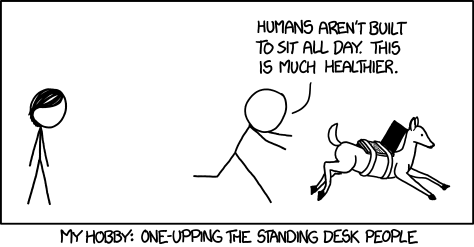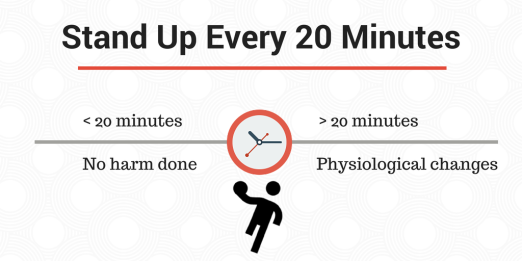“How vain it is to sit down to write when you have not stood up to live.”
Henry David Thoreau“After nourishment, shelter and companionship, stories are the thing we need most in the world.”
Philip PullmanWords can be like X-rays if you use them properly -- they’ll go through anything. You read and you’re pierced.”
Aldous Huxley, Brave New World“Tomorrow may be hell, but today was a good writing day, and on the good writing days nothing else matters.”
Neil Gaiman
“If my doctor told me I had only six minutes to live, I wouldn't brood. I'd type a little faster.”
Isaac AsimovI have put Thoreau’s quote at the head because I do believe that it is best to accumulate experience of life before writing. That fact accepted, the balance of the quotes could be from my heart.
V.

ANOTHER OF MY SISTER LUCY’S MARVELOUS PHOTOGRAPHS. SHE HAS A THING ABOUT WINDOWS.
For most of my writing life, I have focused on the writing itself, rather than why I write. It is not that I’m not introspective on occasions. It was more that I felt my energies would be better employed on trying to master my craft—or, at least, fail at an acceptable level. It has been quite a struggle, I can tell you—and it continues to be so. That being said, it has been—and remains—a truly wonderful experience, satisfying on a level that I will never be able to explain adequately..
When I try and imagine my life without writing, I practically break into a cold sweat. I harken back to the days when I had a conventional office job—and what I remember most about that period was being entirely unable to accept that life should be so limited. I rejected that way of life at a visceral level. I’m not even entirely sure why. I was well paid; I had excellent prospects; I liked the people I worked for and with; I enjoyed a great deal of what I did. And yet that way of life felt entirely hollow.
In the end, it was less than my choosing to become a writer than some unstoppable force compelling me to change direction. It was an epiphany, if ever there was one. I obeyed. I had no choice in the matter. But, it was disconcerting, because, at the start, I really had scant idea how to do what I was destined to do. In fact, I didn’t even have a story.
I guess that was the whole point. The idea was for me to start at the beginning. And then fate handed me a story—or an idea for a story. Fate didn’t supply a full story. That’s not the way it works. You have to pay your dues.
I wish they hadn’t supplied a real, freshly dead, hanging body. He was young and deserved better. But maybe the fates can’t tell the difference between fact and fiction. After all, in the scheme of things, we are probably the entertainment.
When I write this blog, I tend to recall how tough these early years were—so hope that somehow my words will help some other aspiring writer feel less alone. Yes, it was hard pounding. But, I endured. Keep the faith, and you will too. It’s not difficult. But, it is damnably hard.
But now let me turn to Nobel Laureate William Faulkner on writing. Maria Popova of Brainpickings.org has recently quoted him. Let me do the same. At his 1950 Nobel acceptance speech, Faulkner commented that “the writer’s duty is to help man endure by lifting his heart.”
Hard not to admire a writer who thinks like that. Now, let Faulkner speak.
“It’s the most satisfying occupation man has discovered yet, because you never can quite do it as well as you want to, so there’s always something to wake up tomorrow morning to do.”
“I think that no writer is ever quite satisfied with the book — that’s why he writes another one; that he is trying to put on paper something that is going to be a little better than anybody else has put on paper up to date… This is my favorite one because I worked the hardest on it — not to accomplish what I hoped to do with it, but I anguished and raged over it more than over any other to try to make something out of it, that it was impossible for me to do. It’s the same feeling that the parent may have toward the incorrigible or the abnormal child, maybe.”
“I read everything I could get my hands on without any discretion or judgment at one time, and I’m sure that everything I’ve read from the telephone book up has influenced what I’ve done since. I think that’s true of any writer.
[...]
Any experience the writer has ever suffered is going to influence what he does, and that is not only what he’s read, but the music he’s heard, the pictures he’s seen.”
“You’re alive in the world. You see man. You have an insatiable curiosity about him, but more than that you have an admiration for him. He is frail and fragile, a web of flesh and bone and mostly water. He’s flung willy nilly into a ramshackle universe stuck together with electricity. The problems he faces are always a little bigger than he is, and yet, amazingly enough, he copes with them — not individually but as a race.
He endures.
He’s outlasted dinosaurs. He’s outlasted atom bombs. He’ll outlast communism. Simply because there’s some part in him that keeps him from ever knowing that he’s whipped, I suppose; that as frail as he is, he lives up to his codes of behavior. He shows compassion when there’s no reason why he should. He’s braver than he should be. He’s more honest.
The writer is so interested — he sees this as so amazing and you might say so beautiful… It’s so moving to him that he wants to put it down on paper or in music or on canvas, that he simply wants to isolate one of these instances in which man — frail, foolish man — has acted miles above his head in some amusing or dramatic or tragic way… some gallant way.
That, I suppose, is the incentive to write, apart from it being fun. I sort of believe that is the reason that people are artists. It’s the most satisfying occupation man has discovered yet, because you never can quite do it as well as you want to, so there’s always something to wake up tomorrow morning to do. You’re never bored. You never reach satiation.”
“I prefer to think that no writer has got time to be too concerned with style, that he is simply telling this dramatic instance in the most effective way he knows, that the book, the story, creates its own style.
Long and involved sentences — I don’t like them any more than the people that have to read them do, but I couldn’t think of any, to me, better, more effective, way to tell what I was trying to tell. And it’s not really an evolution — simply that one story in my opinion demanded, compelled a certain diction and style. The story next to it has compelled a completely different one.”
Do I agree with Faulkner about all this? You know I’m not sure that I do. The fact is that we writers tend to evolve a style whether we know it, or not. We can certainly vary it—up to a point—but it is highly likely to remain recognizable.
How do I know this? Well, clearly I don’t for certain. But I do have a major story in my shot-locker which involved billions of dollars—and pivots on style—and that is all all I’m prepared to tell you for the time being.
It’s called building up suspense. It also happens to be true.



